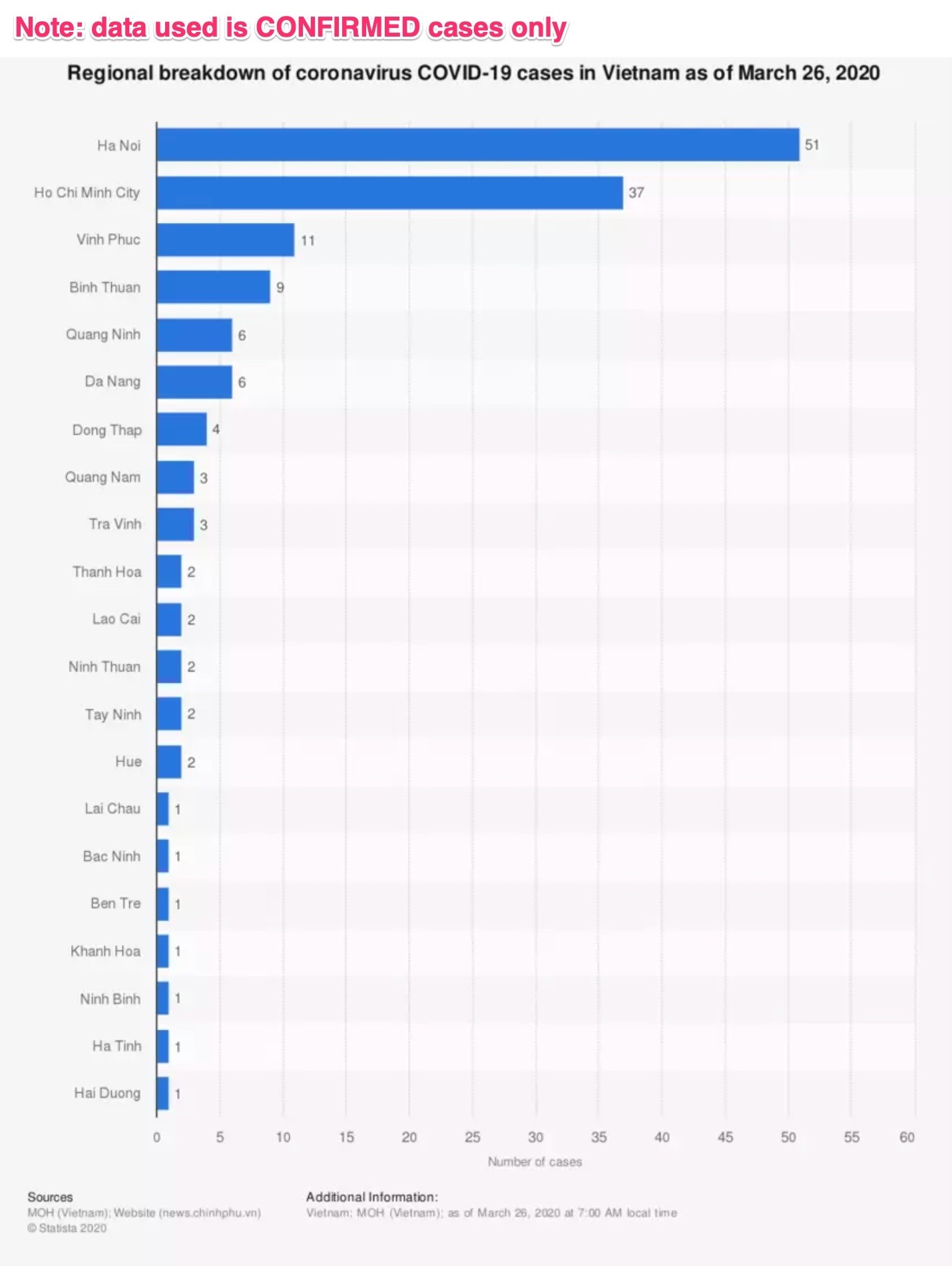Why is Vietnam COVID-19 cases so low compared to other major SE Asian countries?
@lannie
Yeah, Russia too. It's remarkable that it shares an extensive border with China, but Putin was very decisive in restricting travels from China.

Vietnam never closed its border, it just does the same thing as China.
Swift action
On 1 February, Viet Nam kicked off a series of initiatives to tackle the spread of COVID-19. It suspended all flights to and from China. It also decided to keep schools closed after the lunar New Year break. Two weeks later, a 21-day quarantine was imposed in Vinh Phuc province, north of Hanoi. That decision was sparked by concerns over the health status of migrant workers returning from Wuhan, China, where the virus originated.
Viet Nam's proactive efforts come after two decades in which the country has experienced a large improvement in quality of life. Between 2002 and 2018, an economic transformation helped to lift more than 45 million Vietnamese out of poverty. Gross domestic product (GDP) per capita has more than doubled, to over $2,500 in 2018, when the country saw real GDP growth of 7.1%. The health of the nation has improved, too – life expectancy rose from 71 years in 1990 to 76 years in 2015.
The regional breakdown of confirmed COVID-19 cases in Vietnam.
Image: Statista
The country’s healthcare system is improving, too, but still has a lot of ground to cover. There are around eight doctors to every 10,000 people in Viet Nam. Italy and Spain both have 41 doctors per 10,000 people, the US has 26, and China 18.
Its anti-coronavirus measures have gone on to include mandatory 14-day quarantines for anyone arriving in Viet Nam and the cancellation of all foreign flights. It has also isolated infected people and then set about tracking down anyone they might have come into contact with.
“Neighbours know if you come from a foreign country,” said Truong Huu Khanh, head of the department of infectious diseases at Ho Chi Minh City Children’s hospital. “If an infected person is in the area, they will report this.”
What is the World Economic Forum doing about the coronavirus outbreak?
A new strain of Coronavirus, COVID 19, is spreading around the world, causing deaths and major disruption to the global economy.
Responding to this crisis requires global cooperation among governments, international organizations and the business community, which is at the centre of the World Economic Forum’s mission as the International Organization for Public-Private Cooperation.
The Forum has created the COVID Action Platform, a global platform to convene the business community for collective action, protect people’s livelihoods and facilitate business continuity, and mobilize support for the COVID-19 response. The platform is created with the support of the World Health Organization and is open to all businesses and industry groups, as well as other stakeholders, aiming to integrate and inform joint action.
As an organization, the Forum has a track record of supporting efforts to contain epidemics. In 2017, at our Annual Meeting, the Coalition for Epidemic Preparedness Innovations (CEPI) was launched – bringing together experts from government, business, health, academia and civil society to accelerate the development of vaccines. CEPI is currently supporting the race to develop a vaccine against this strand of the coronavirus.
Show
Neighbourhood watch
As a single-party state, with large and well-organized military and security services, Viet Nam has been able to make decisions quickly and enact them promptly. There is also a strong culture of surveillance, with people expected to inform on their neighbours if they suspect any wrong-doing. Anyone found sharing fake news and misinformation about the coronavirus risks a visit from the police, and around 800 people have been fined so far.
It’s not the kind of approach that is likely to work in more open societies. But with limited clinical resources at its disposal, Viet Nam has seemingly managed to get the outbreak under control.
Meanwhile, nearby Thailand has so far recorded four COVID-19 deaths, but is experiencing a significant rise in infections. On 24 March, Thailand’s Public Health Ministry announced 107 new cases, bringing the total to 934. The fault, according to Dr Taweesin Visanuyothin of the ministry, lies with “partygoers (who) transmitted the disease to about 100 other people … at-risk people must obey social distancing, both at their workplaces and at home.”
Another close neighbour, Myanmar, is drawing criticism from some for what has been perceived as a lack of transparency over the outbreak. Aung San Suu Kyi, Myanmar’s civilian leader, claimed recently the country had no cases of COVID-19, although that figure now stands at three.
The government has made claims that “lifestyle and diet”, along with people’s preference for cash instead of credit cards, was keeping Myanmar safe from the illness. These and other similar statements drew the ire of Phil Robertson, Deputy Director, Asia Division of Human Rights Watch, who said: “Such irresponsible statements clash with everything known about the coronavirus outbreak, defy reality, and only serve to give a false sense of security to the country’s people about the disease and their risks of infection.”
https://www.weforum.org/agenda/2020/03/vietnam-contain-covid-19-limited-resources/
https://www.amazians.com/wp-content/uploads/wpforo/attachments/119/82-Capturenanolive.JPG

 640w,
640w, 